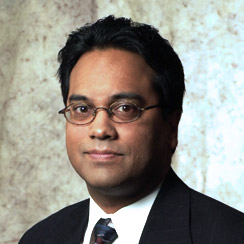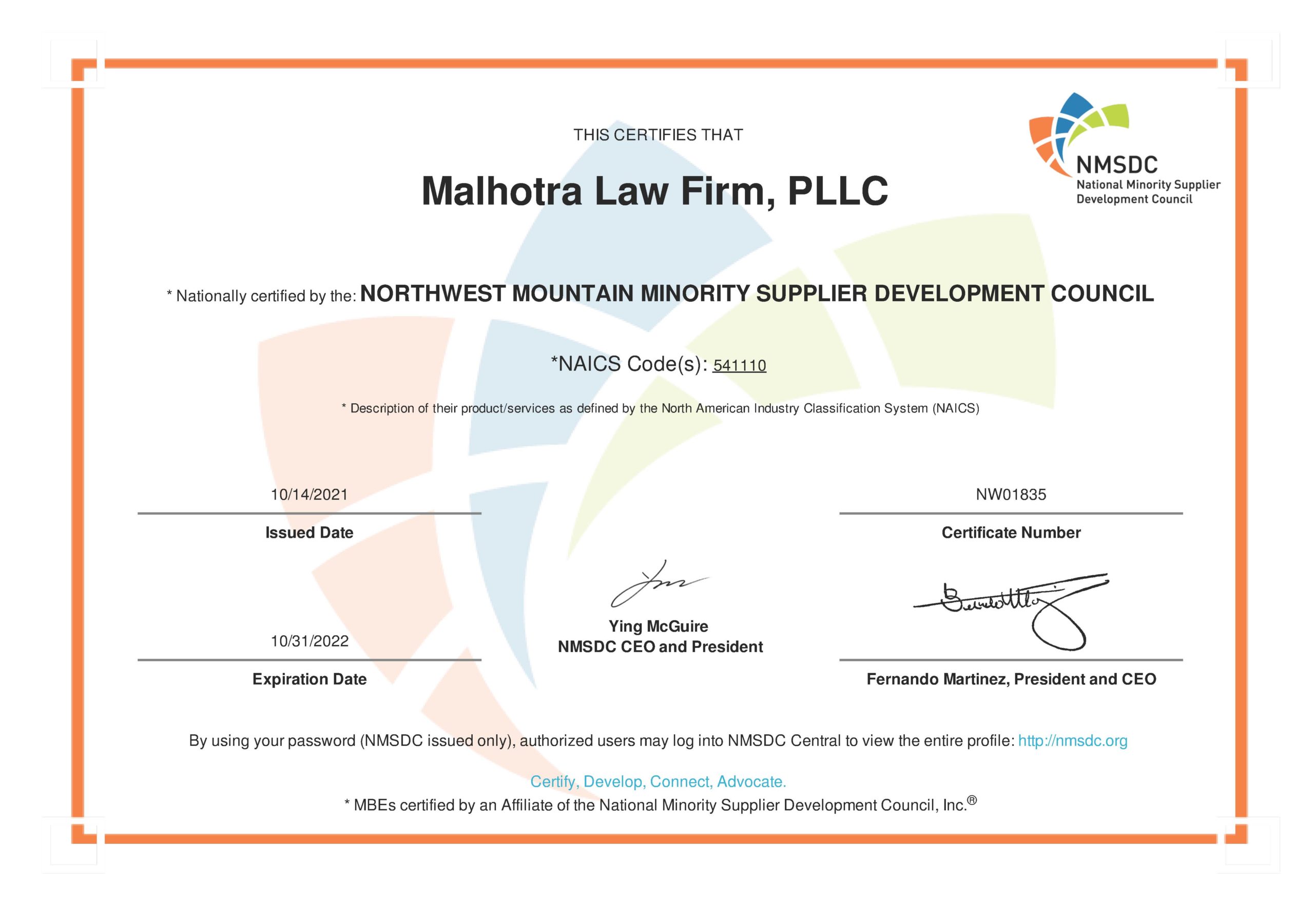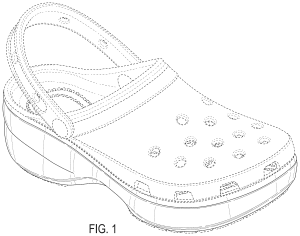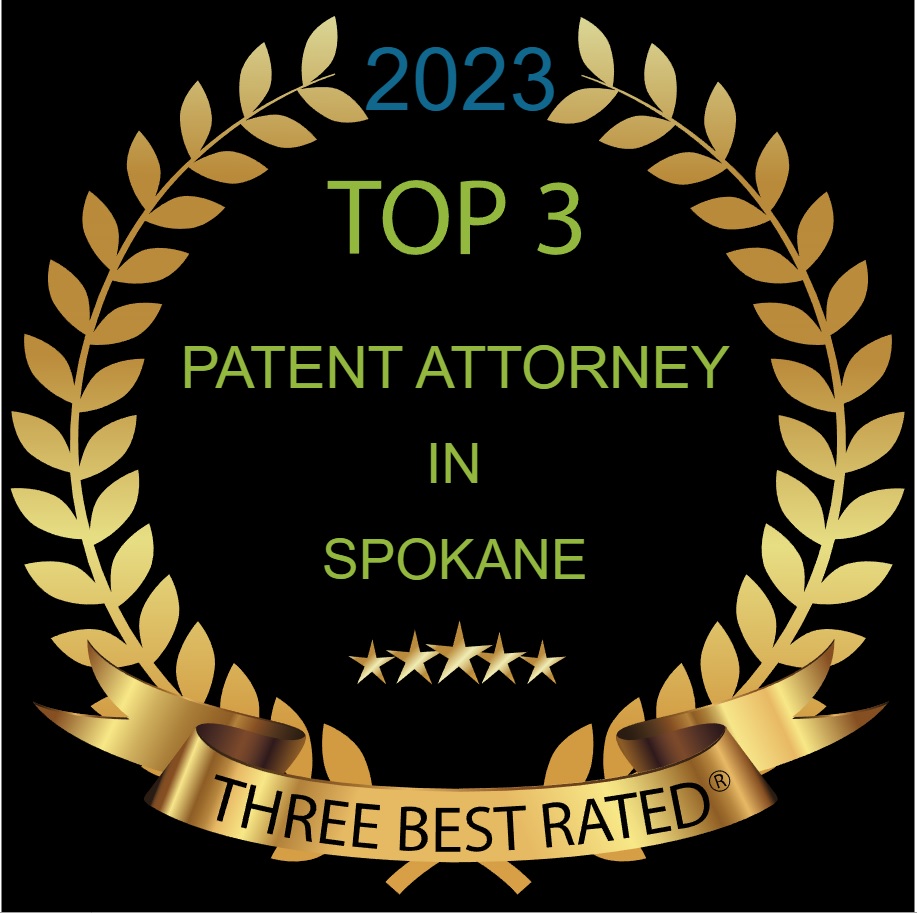Deepak Malhotra, JD, BSEE
Inventor and US Patent Attorney
Are you looking for a partner to help protect your ideas?
Let me introduce myself. I am Deepak Malhotra. I have over 20 years experience in patent preparation and prosecution, and have successfully prosecuted hundreds of patent applications to allowance. I have worked on large portfolios for many Fortune 500 companies. Importantly, I am dedicated to strong customer service. That’s not something you experience much in the legal world – but I believe you deserve timeliness as well as quality.
(By continuing, you agree that you have read, understood, and agree to this Disclaimer and Privacy Policy.)

Software Patent Lawyer, Electronics Patent Attorney
Deepak Malhotra, JD, BSEE has worked extensively with various technologies including software, RF communications, sensors, smart cards, ESD protection, tape drivers, servo systems, printers, static memory cells, dynamic memory cells, database, publishing systems, virtual reality, wafer production methods, wafer polishing, antenna diversity systems, RF collision arbitration systems, marketing systems, electron multipliers, microwave electronics, digital clock recovery loops, secure network authentication systems, user interfaces, and more. Malhotra Law Firm, PLLC was a minority certified patent law firm, certified by the Northwest Mountain Minority Supplier Development Council.


Malhotra Law Firm, PLLC has experience in:
- Protecting electrical, electronics, and mechanical inventions
- Assisting venture-capital funded start ups & Fortune 500 companies
- Helping foreign companies secure intellectual property protection in the U.S.
- Protecting software inventions with software patents
- International protection of inventions

Patents
In the language of the statute, any person who “invents or discovers any new and useful process, machine, manufacture, or composition of matter, or any new and useful improvements thereof, may obtain a patent,” subject to the conditions and requirements of the law. These classes of subject matter taken together include practically everything made by man and the processes for making them.

Trademarks
The primary function of a trademark is to indicate origin. However, trademarks also serve to guarantee the quality of the goods or services and, through advertising, serve to create and maintain demand. Rights in a trademark are acquired by use or applying for a federal trademark registration before use.

Business Method Patent Considerations
Attitudes towards business method patents have swung back and forth like a pendulum but recently the Supreme Court has refused to deem business methods patent ineligible. Business methods are generally eligible for patent protection if they pass a “Mayo/Alice” test. The first part of the test is to determine whether the claims are directed to an abstract idea, a law of nature or a natural phenomenon (i.e., a judicial exception). If the claims are directed to a judicial exception, the second part of the Mayo test is to determine whether the claim recites additional elements that amount to significantly more than the judicial exception. Many inventions that are thought to be business method inventions are really what I consider to be software inventions.

Software Patents
Like it or not, software patents are here to stay! Instead of hoping that they go away, your best defense against future potential infringement threats by others is to have an arsenal of your own. The U.S. Supreme Court, in a case known as Alice v. CLS, held that using a computer to automate a well known financial method is an unpatentable abstract idea. So what types of software inventions are patent-eligible?

How to Protect Phone Apps
Are you a smart phone app developer? If so, you will want to know what forms of intellectual property are available for protecting smart phone apps.

Provisional Patent Applications
The United States has a form of patent application called a Provisional Patent Application. Some people feel that these are an easy and inexpensive way to obtain a filing date and some patent rights, but they are usually unaware of the risks and downside.

Important Changes to U.S. Patent Law: America Invents Act (AIA)
The United States switched from a First-to-Invent system to a First-to-File system. That makes it important to file patent applications sooner rather than later.
Conducting A Patent Novelty Search
A thorough patent search is an enormous undertaking. However, you can start with a novelty search that covers the most likely languages and places.
The History of Software Patents Blog
USC IP PARTNERSHIP V META , FEDERAL CIRCUIT 2023 (SOFTWARE PATENTS)
USC brought suit for infringement against Facebook, Inc. (now Meta Platforms, Inc.), asserting that its “News Feed” feature infringes claims 1–17 of U.S. Patent No. 8,645,300. The software patent relates to a search engine software method for predicting which webpages to recommend to a web visitor based on inferences of…
TRINITY INFO MEDIA, LLC V. COVALENT, INC., FEDERAL CIRCUIT 2023 (SOFTWARE PATENTS)
Trinity Info Media, LLC sued Covalent, Inc. for infringement of U.S. Patent Nos. 9,087,321 and 10,936,685 relating to methods and systems for connecting users based on their answers to polling questions. U.S. Patent No. 9,087,321 teaches that its claimed invention is “directed to a poll-based networking system that connects users…
HANTZ SOFTWARE, LLC, V SAGE INTACCT, INC., FEDERAL CIRCUIT 2023 (SOFTWARE PATENTS)
Any ineligibility judgment should apply to only claims asserted in a complaint if held patent-ineligible after a motion to dismiss for failure to state a claim. Hantz sued Sage alleging that Sage infringed U.S. Patent Nos. 8,055,559 and 8,055,560. Sage moved to dismiss the complaint for failure to state a…
HAWK TECHNOLOGY SYSTEMS, LLC, V CASTLE RETAIL, LLC, FEDERAL CIRCUIT 2023 (SOFTWARE PATENTS)
A multi-format digital video product system capable of maintaining full-bandwidth resolution while providing professional quality editing and manipulation of images, which is capable of conserving bandwidth while preserving data is not patent-eligible. Appellant Hawk Technology Systems, LLC sued Appellee Castle Retail, LLC in the Western District of Tennessee for patent…
IN RE CERTAIN POLYCRYSTALLINE DIAMOND COMPACTS AND ARTICLES CONTAINING SAME, INTERNATIONAL TRADE COMMISSION 2022 (SUBJECT MATTER ELIGIBILITY)
The ITC took 35 U.S.C. § 101 to its logical extreme in this case, finding that diamond drill bits with certain physical measures are not patent-eligible. The U.S. International Trade Commission conducts unfair import investigations that, most often, involve claims regarding intellectual property rights. US Synthetic Corporation filed an ITC…
Latest News
Codifying Discretionary Denial of IPR Petitions
by Dennis Crouch
The USPTO recently released yet another Notice of Proposed Rulemaking (NPRM) — this one focusing on codification of IPR/PGR rules associated with non-merits based “discretionary denials” of institution as well as termination due to settlement. This is a controversial area because of that word ‘discretion.’ Unrestricted discretion by government officials is concerning because of the potential for arbitrary or biased decisions, lacking transparency and accountability. In that frame, these rules are beneficial because they structure and limit discretion – hopefully making the outcomes more predictable and justifiable. A key note – the rules here focus primarily on procedure (separate briefing for discretionary denials) and substantive issues relating to parallel, serial, and cumulative petitions. Although this is an important step, they do not address discretionary denials associated with parallel litigation (or other outside factors) under Fintiv and subsequent director guidance. This is likely the most controversial area of discretionary denials that is being left out for now.
Congress clearly intended the USPTO to have substantial discretion in denying when to institute IPR proceedings. Although the law sets a floor for institution (reasonable likelihood of success), the statute does not require institution in those cases.
Continue reading Codifying Discretionary Denial of IPR Petitions at Patently-O.
AI as Author: Thaler v. Perlmutter Now Before the DC Circuit

by Dennis Crouch
The leading case on copyrightability of AI created works is now pending before the Court of Appeals for the District of Columbia. The case, Thaler v. Perlmutter, No. 23-5233 (D.C. Cir. 2024), centers on Dr. Stephen Thaler’s attempts to register a copyright for an artistic image autonomously generated by his AI system that he has named the “Creativity Machine.” The U.S. Copyright Office refused registration on the basis that the work lacked the required human authorship. Thaler filed suit challenging this determination. The parties have now filed their briefs, along with one law professor amicus brief in support of Thaler.
Stephen Thaler developed an AI system he calls the Creativity Machine. Using this system, he autonomously generated a 2-D artwork titled “A Recent Entrance to Paradise.” In November 2018, Thaler filed an application with the Copyright Office seeking to register a copyright in this AI-generated work.
The Copyright Office refused registration in August 2019, stating that it “cannot register this work because it lacks the human authorship necessary to support a copyright claim.” After requests for reconsideration were denied, Thaler filed suit against the Copyright Office in June 2022, arguing that “requiring human authorship for registration of copyright in a work is contrary to law.”
In 2023, the district court granted summary judgment in favor of the Copyright Office.
Continue reading AI as Author: Thaler v. Perlmutter Now Before the DC Circuit at Patently-O.
False Patent Marking as False Advertising: Overcoming Dastar

by Dennis Crouch
The Federal Circuit is set to consider the use of terms like “patented,” “proprietary,” and “exclusive” in commercial advertising can be actionable under § 43(a)(1)(B) of the Lanham Act when their use is not entirely accurate. The key issue on appeal is whether the district court erred in granting summary judgment for Crocs on Double Diamond Distribution and U.S.A. Dawgs’ (“Dawgs”) counterclaim for false advertising under the Lanham Act.
This case began back in 2006 when Crocs sued Double Diamond and others for patent infringement of Crocs’s design patents. That case was stayed while related proceedings played out before the International Trade Commission and on appeal to the Federal Circuit. Crocs largely prevailed in those actions.
In 2016, Dawgs added new asserted counterclaims against Crocs, including a claim for false advertising under the Lanham Act. Dawgs alleged that Crocs falsely marketed its “Croslite” shoe material as “patented,” “proprietary,” and “exclusive” when in fact the material ethyl vinyl acetate, a well known compound used by many footwear companies.
Crocs moved for summary judgment on Dawgs’ Lanham Act counterclaim, arguing that under Dastar Corp. v. Twentieth Century Fox Film Corp.
Continue reading False Patent Marking as False Advertising: Overcoming Dastar at Patently-O.
While one of only three Electrical Engineer attorneys at his previous firm, the firm was ranked #2 in the U.S. for quality of Electrical Patents by PatentRatings, LLC. Deepak Malhotra has developed relationships with litigators and has assisted clients with aggressive enforcement of intellectual property. Software patents, business method patents, electrical patents, and mechanical patents are his specialties.
Deepak Malhotra Is Not Just A Patent Attorney,
He Is An Inventor Too, With Two U.S. Patents In His Name.



